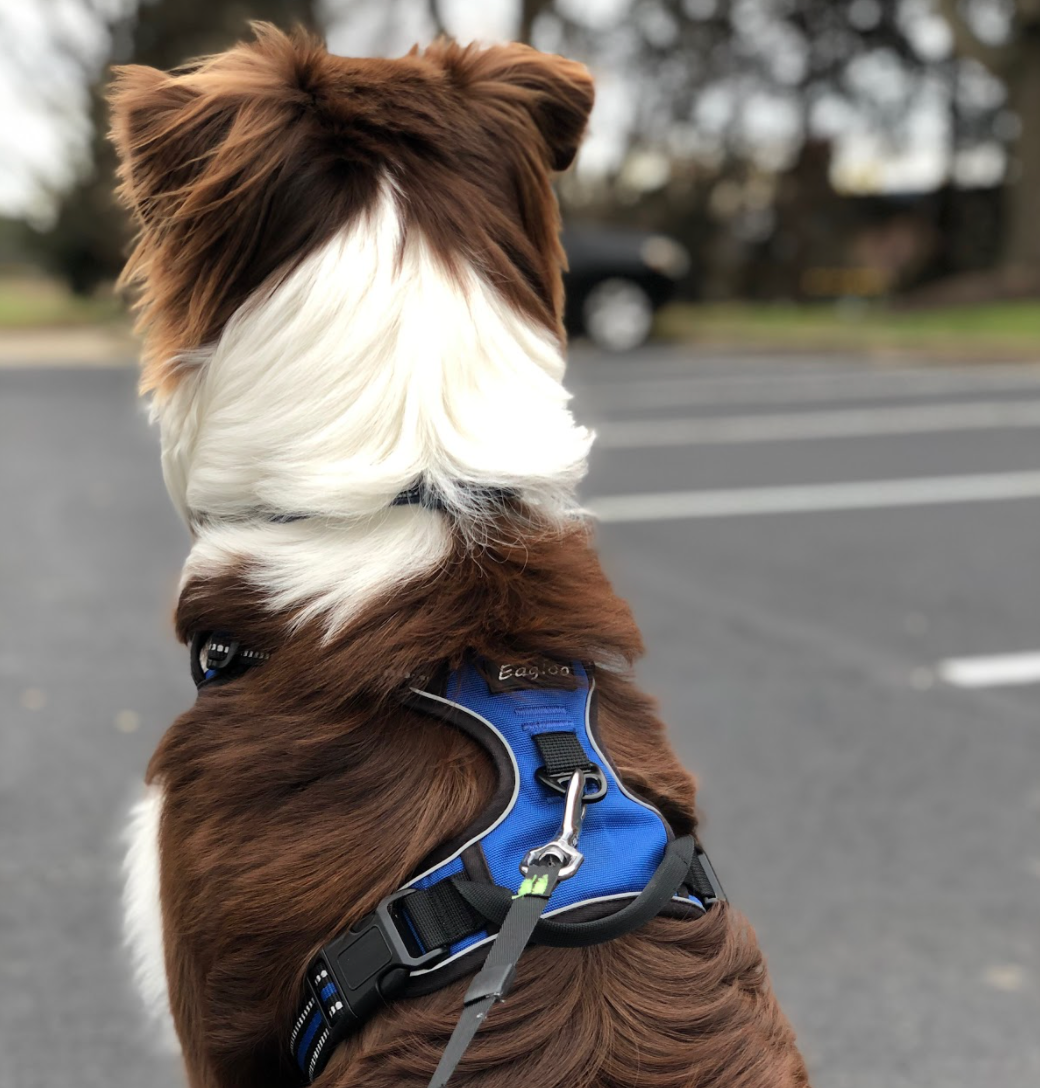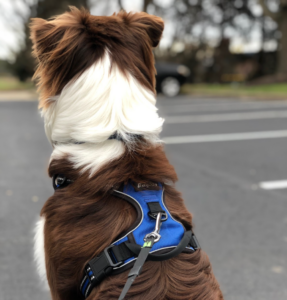‘Covid Puppies’ Deprived of Necessary Socialization

by Kate Diuguid ‘22
 In May, two months into the Covid-19 pandemic quarantine, my family got an Australian Shepherd puppy and named him Finnegan. This tiny puppy would grow to be utterly afraid of every little thing, namely baby gates, delivery boxes, vacuums, and literally every person outside of our immediate family. Little did we know, this phenomenon of terrified, anxious puppies was not unique to our Finn, and puppies are experiencing issues that my family, at least, did not anticipate.
In May, two months into the Covid-19 pandemic quarantine, my family got an Australian Shepherd puppy and named him Finnegan. This tiny puppy would grow to be utterly afraid of every little thing, namely baby gates, delivery boxes, vacuums, and literally every person outside of our immediate family. Little did we know, this phenomenon of terrified, anxious puppies was not unique to our Finn, and puppies are experiencing issues that my family, at least, did not anticipate.
Socialization of puppies is the important practice of introducing them to many new objects, animals, and all kinds of people when they are really young so that later on in life they won’t get so startled in unfamiliar situations. However, amidst the pandemic, puppies have been isolated from everyday experiences and are suffering repercussions. Puppies, and even human babies, are afraid of many common encounters instinctually, but being acquainted with the world at a young age makes them more comfortable later on. Without this vital introduction to commonplace occurrences, pandemic-era puppies are generally far more anxious than they ever were before.
“Covid Puppies,” as they’ve been deemed, are impatient, fearful, and many experience separation anxiety from owners who so rarely leave the house. “We got our puppy in July, and ever since we got him he has to be around people or else he gets really upset. He’s a big people person and when you try to leave the house he starts crying,” junior Ella Joliet told me.
Some behaviors have become very common amongst pets during the pandemic, including territorial barking, continually nosing at owners to pet them, constantly being underfoot, and acting needier in general. “She’s basically a shadow–following us everywhere–and always has to be physically touching someone,” said junior Katie Kanecko about her family’s puppy.
However, if you have noticed these behaviors in your “Covid Puppy,” all is not lost. Just remember to give your pets a little extra space and try and stick to a regular routine; dogs thrive amongst consistency and it lets them get used to when they eat, when they go on a walk, etc. Overall, remember to give your pup a little extra grace; after all, they are going through this craziness just like we are.
As Finn approaches his first birthday, he is a little less wary of the world. When my family learned the effects of no socialization, we made an effort to take Finn on hikes where he would see other people and animals, to curbside pick-ups for a change of scenery, even up to Carmen’s to get a Puppy-Pop (he loves the pumpkin). While the efforts to socialize can be trying, the love that Finn returns has made it all worth it.